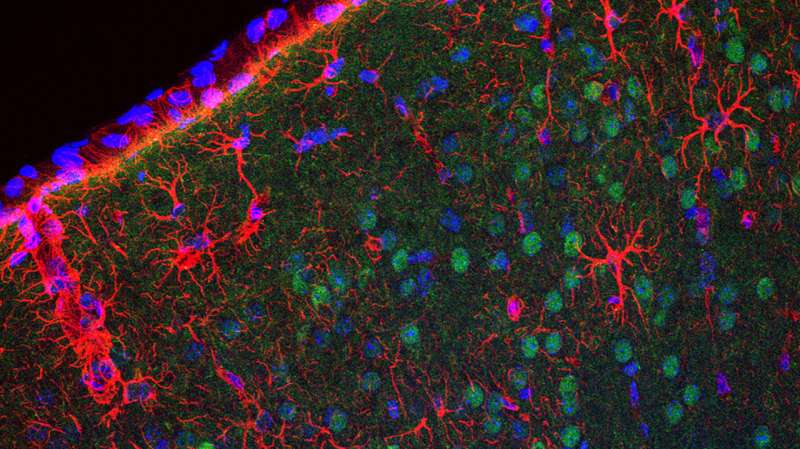This article has been reviewed according to Science X's editorial process and policies. Editors have highlighted the following attributes while ensuring the content's credibility:
fact-checked
peer-reviewed publication
trusted source
proofread
Sex-specific differences seen in response to reduced insulin activity

Insulin is not only a regulator of blood sugar, but also has an influence on life expectancy. If the insulin signaling pathway is inhibited, animals live longer. But which tissue is crucial for this? And do males and females react in the same way?
Researchers from the Max Planck Institute for Biology of Aging in Cologne have specifically lowered insulin pathway levels in different tissues of male and female mice. Their study shows that the life expectancy of the mice only increases when the insulin signaling pathway is inhibited throughout the body. In male mice, however, the inhibition in the brain was sufficient to improve the animals' health in old age.
The insulin signaling pathway is one of the central metabolic pathways that has been shown to influence lifespan in many animal models and is probably also important for healthy aging in humans. "We wanted to know which organ is responsible for the observed lifespan effect in mice and whether this is sex-specific," explains Maarouf Baghdadi, lead author of the study.
In a comprehensive approach, he targeted each metabolic organ (liver, muscle, fat and brain) by switching off the gene IRS1 in the signaling pathway specifically in that organ of the mice, thereby inhibiting the pathway.
The scientists found that no tissue-specific knock-out is sufficient to extend lifespan in males or even in females. "This result was surprising for us, as it was previously shown that tissue-specific inhibition of the insulin signaling pathway was sufficient in worms and flies," says Baghdadi. The researchers speculate that the reason for this observation could be that other variants of the gene present in mammals may take over the job of IRS1 and thus compensate for its loss.
Brain-specific knock-out improves health in old male mice
However, when the researchers examined the health of the animals as they aged, they found a significant difference. In male mice, they observed an increase in activity and energy consumption in old animals after a specific knock-out in the brain.
In their search for the cause, they discovered an increased stress signal in the brains of the mice. "A slightly increase in stress can lead to improved functioning of cells. It's just like muscle training. Constant but moderate training keeps the cells fit. This could explain the better health," says Baghdadi.
The study opens up new possibilities to improve health in old age. However, it also shows that therapeutics should be used in a gender-specific way. "This is an unexpected consequence of reduced insulin signaling in the brain, and it emphasizes that the routes to healthy aging differ between males and females," adds Linda Partridge, director at the Max Planck Institute for Biology of Aging, who led the study.
The research is published in Science Advances.
More information: Maarouf Baghdadi et al, Reduced insulin signaling in neurons induces sex-specific health benefits, Science Advances (2023). DOI: 10.1126/sciadv.ade8137




















